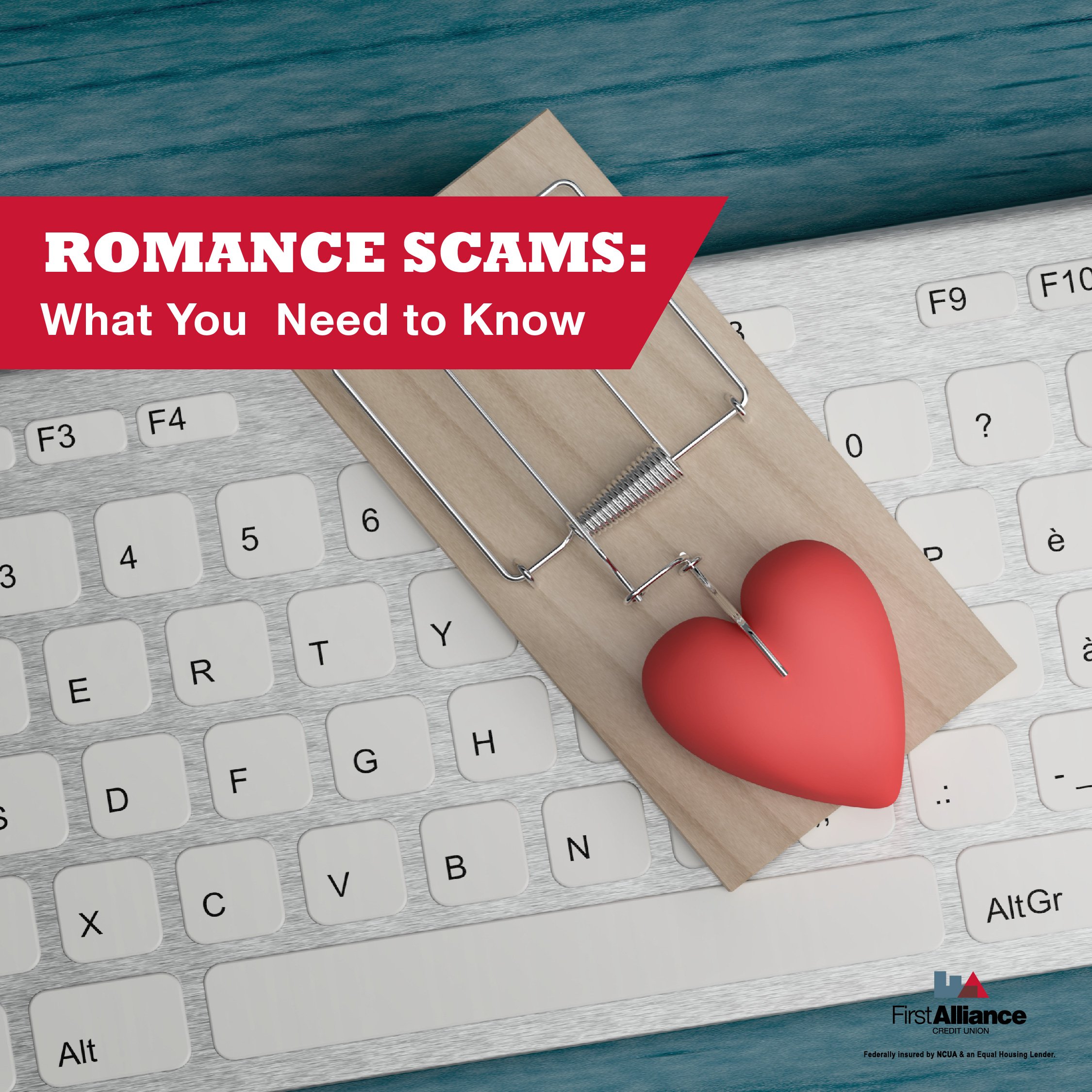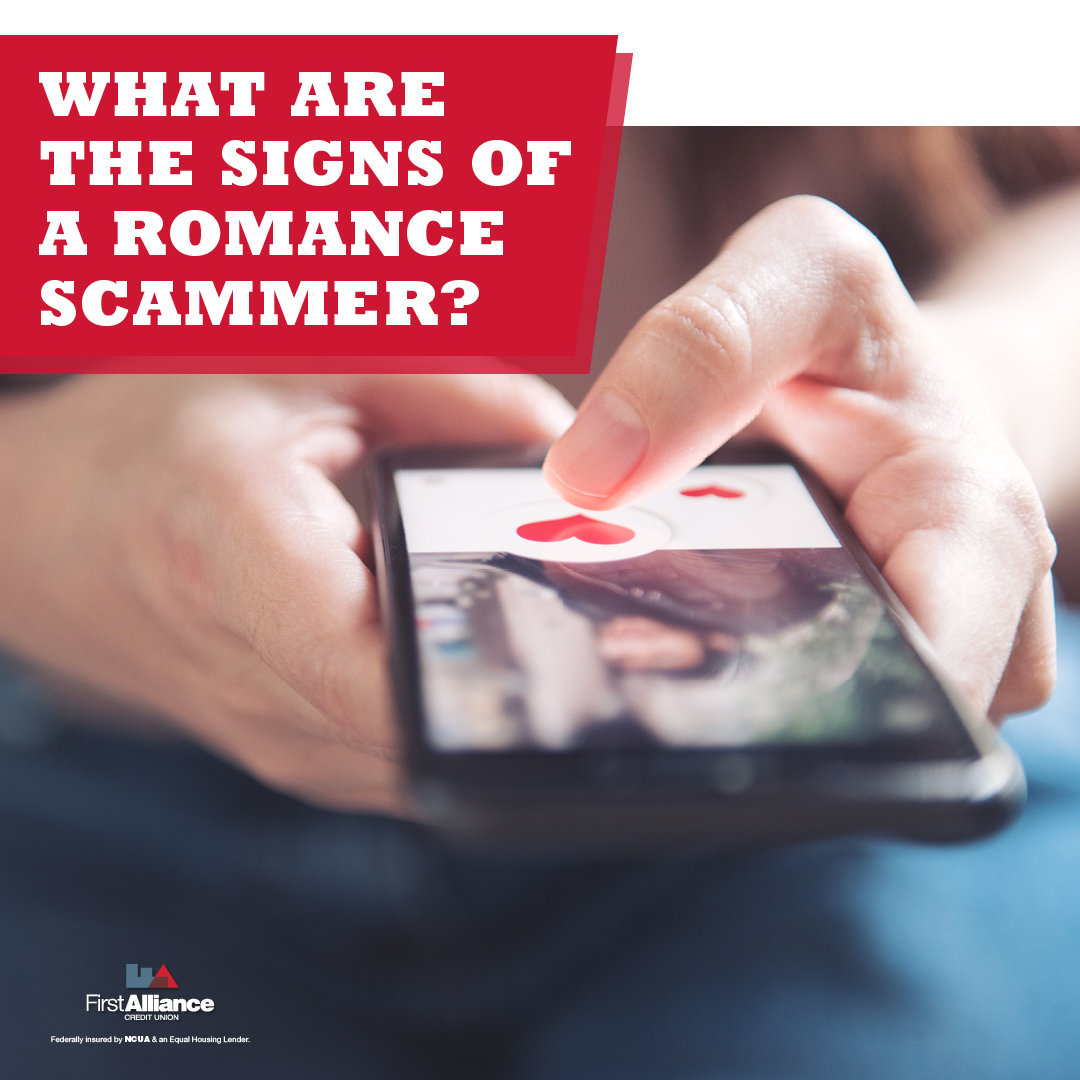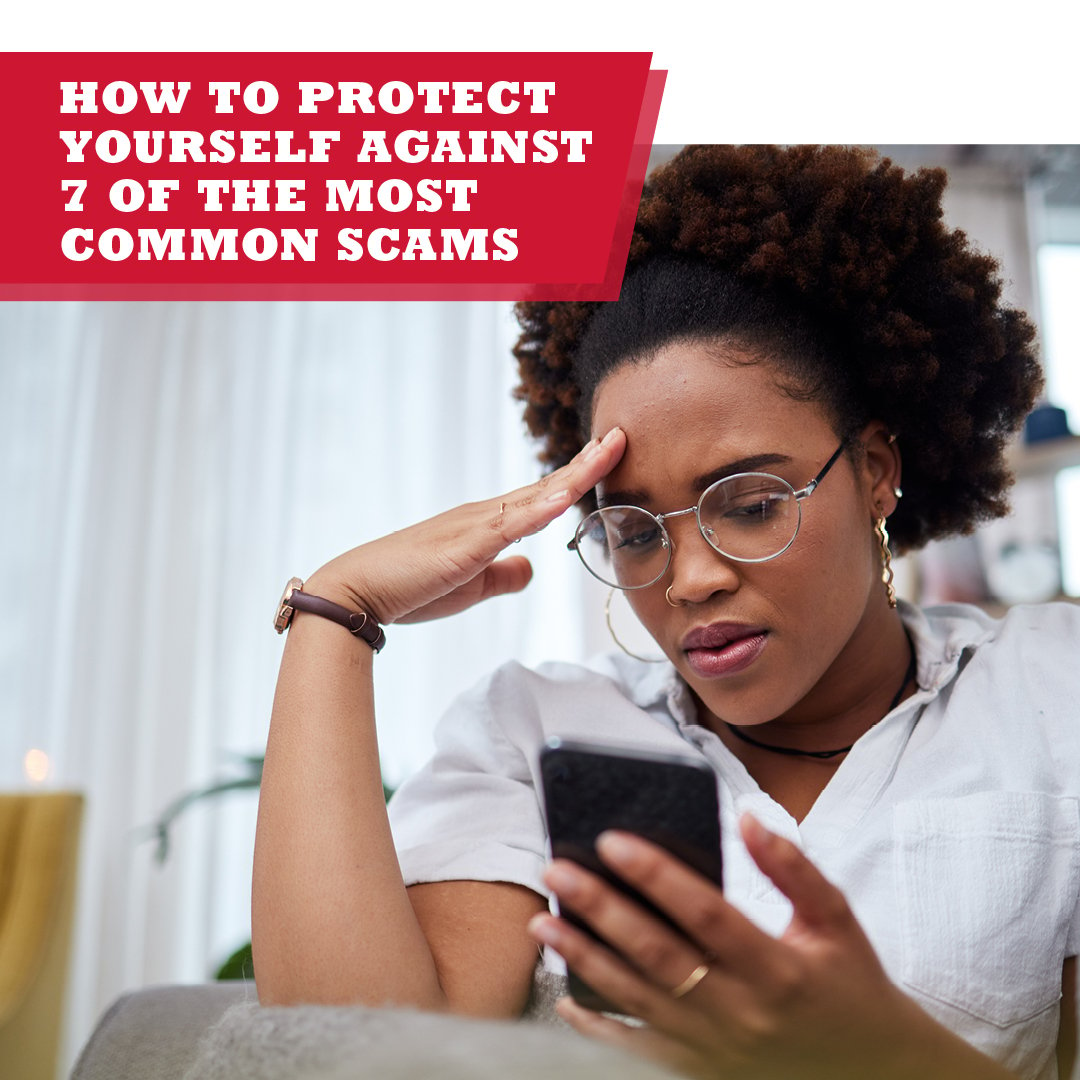What are the Signs of a Romance Scammer?
In some ways, the Internet has been a real help for anyone looking for love. Several dating sites and mobile apps give you hundreds, even thousands...
4 min read
![]() First Alliance Credit Union
:
Feb 9, 2021 6:15:00 AM
First Alliance Credit Union
:
Feb 9, 2021 6:15:00 AM

Online dating websites, dating apps and social media sites are incredibly popular ways to meet new people. Unfortunately for some, instead of finding romance and companionship they find a scammer trying to steal their money instead of their heart.
Scammers start their scams by setting up fake profiles on online dating sites and apps. Some scammers also use social media like Facebook, Instagram and Whatsapp to select their targets.
Once someone has contacted a scammer or been matched with them, the scammer will begin to develop relationships with their targets, building trust and often chatting or talking several times a day through email, online chats, or text. Often romance scammers begin to profess their love in a very short period of time. However, they will almost never allow you to see them in person or on even video.
After you've been talking with a romance scammer for a while and have built up a connection, they'll launch the second stage of their scam on you--the Ask. This is where the scammer asks their victim for money. They usually ask for money because they're having an emergency, like losing their passport in a foreign country, getting assistance with medical bills or they need help paying off a debt. They insist that they will eventually visit, just as soon as they've taken care of the emergency.
Once the scammer has convinced their target that they are in desperate need, they will ask for a wire transfer, cryptocurrency, gift card or reloadable cards to get them the money. We've also seen where the scammer has sent the target a check for deposit and that check was fraudulent. These payments are quick and pretty much impossible to get back.
Romance scammers typically ask for personal information and financial information from their victims. They may ask for details such as full name, address, phone number, and bank account information. They often use this information to commit identity theft or financial fraud against their victims.
If you're interacting with someone on a dating site or app, and he or she mentions that they are living outside of the country or traveling outside of the country, your antenna should go up. Examples of this are if a person says they are in the military, working on an oil rig, works internationally, or is a doctor for an international organization.
Unfortunately, scam artists can be convincing, and you may fall victim to a lending scam despite your best efforts. If you've been scammed, it's important to take immediate action to minimize the financial and personal consequences.
The first thing you need to do once you realize you've been scammed is to try to get your money back. If you sent the scammer money through debit cards or credit cards , contact your bank or credit card company immediately to report the fraud and request a chargeback. Provide them with all relevant information and documentation.
If you sent money through a wire transfer service like Western Union or MoneyGram, contact the service provider as soon as possible. Although it may be difficult to recover these funds, they may be able to provide assistance or advice.
If you paid the scammer with a gift card, the preferred method of many scammers, contact the company that issued the gift card, let them know their card was used in a romance scam, and ask if they can refund your money. They may ask for information about the gift card, such as its serial number, so be sure to hold on to the gift card, as well as the receipt.
After you've contacted the companies, banks and credit unions you used to to send money as a result of the the online dating scam, you need to alert the authorities. Start with your local law enforcement, and file a report with them. You'll need to provide them with information about the scam, such as:
You’ll also want to reach out to the Federal Trade Commission (FTC) at their fraud reporting site.
If you've given a scammer your personal information through a romance scam, especially your bank accounts, you'll need to take immediate action to prevent yourself from getting your identity stolen. If a scammer has used your identity, you may also have to take steps to rebuild your credit score.
First, contact the three credit reporting bureaus, Experian, Equifax and TransUnion, and have them freeze your accounts. You’ll also want to have the bureaus place a fraud alert on your account so lenders will know to take extra steps to verify your identity. If you've shared your social security number with a scammer, you'll also need to reach out to the Social Security Administration and let them know your number has been compromised.
Next, you'll need to login to all your bank accounts, email accounts and retail accounts to update the passwords on all your accounts. You should also set up 2-factor identification on all accounts that offer it to make it harder for scammers to access your information.
Finally, get a copy of your credit report. You’ll want to make sure your credit score is good, and also look for signs of identity theft, such as:
If there is any incorrect information on any of your credit reports, you’ll want to dispute it with the reporting bureau. You should also let them know that you’ve been a victim of identity theft and let them know which information on your report is due to scammer activity.
If you're searching for love online, you need to be on guard against romance scammers. When you start an online relationship, try to verify the other person's identity, and if they ask you for money, politely decline. If you have fallen victim to a scammer, try to minimize your romance scam losses, and let the local and federal authorities know.
You can help protect yourself from romance scams by becoming a member of First Alliance Credit Union. We have a lot of resources that let you avoid scams, such as the First Alliance mobile app with the MyCards feature that will let you limit the dollar amount of purchases on your cards, the geographical area in which you can use your cards and even the types of businesses where you can use your cards. If you believe that you’ve been the victim of a romance scammer, you can also talk with a First Alliance advisor to learn what options you have.

In some ways, the Internet has been a real help for anyone looking for love. Several dating sites and mobile apps give you hundreds, even thousands...

If you’re worried about being scammed, it’s not because you’re paranoid. Scammers are the zombie apocalypse of the financial world. They’re...

Out of all the different types of scams, lending scams might just be the most insidious. These types of scammers fool their victims into thinking...